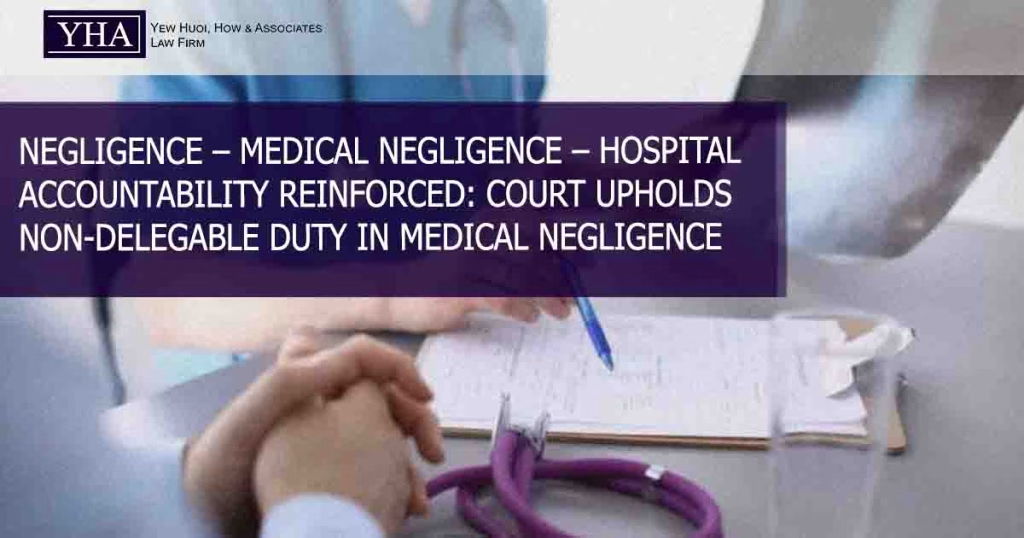Summary and Facts
X underwent a tonsillectomy, palatal stiffening, and endoscopic sinus surgery at a private hospital (Z) on 10/3/2010. Twelve days after the surgery, X experienced heavy bleeding at the surgical site and was rushed to an emergency department. Consultant Y1 recommended immediate surgery to stop the bleeding, assisted by Consultant Y2, the anesthetist. Unfortunately, X’s condition deteriorated in the airlock area outside the operating theater. Although surgery was performed, X suffered severe hypoxic brain damage, resulting in permanent disability. X’s spouse filed a suit against Y1, Y2, and Z, alleging negligence, breaches of contract, and statutory duties.
Key Issues
- Hospital Liability for Independent Contractors: Did Y1’s negligence as an independent contractor render Z liable?
- Non-Delegable Duty of Care: Did Z owe X a non-delegable duty of care, requiring it to prevent harm from acts or omissions of its staff, agents, or independent contractors?
- Indemnity Obligation: Should Y2 indemnify Z for the damages?
Court’s Findings
- Non-Delegable Duty of Care: The court applied the five features established in Woodland v Essex County Council, concluding that Z owed X a non-delegable duty of care:
- Vulnerability: X was vulnerable and entirely reliant on Z for medical care and treatment.
- Accountability: Z’s communication with patients suggested the hospital assumed responsibility for treatment, irrespective of whether tasks were performed by employees, contractors, or other agents.
- & 4. Control and Delegation: X had no control over how Z managed emergency care, whether performed directly by Z’s staff or delegated to third parties like Y1 and Y2.
- Negligence of Delegates: The court found Y2 negligent in providing emergency care to X, breaching the duties delegated by Z.
- Hospital’s Liability: The court rejected Z’s defense based on the independent contractor argument. Due to its non-delegable duty of care, Z held personal liability for X’s injuries beyond the individual responsibilities of Y1 and Y2.
Conclusion
This case reinforces the high standard of duty of care hospitals owe to their patients. Judgment was entered against Z (D3), holding it fully liable for the injuries suffered by X due to its non-delegable duty of care.
Cases Referred
- Dr Hari Krishnan & Anor v Megat Noor Ishak bin Megat Ibrahim & Anor and another appeal [2018] 3 MLJ 281
- Woodland v Essex County Council [2014] 1 All ER 482; [2013] UKSC 66
- Dr Kok Choong Seng & Anor v Soo Cheng Lin and another appeal [2018] 1 MLJ 685; [2017] 10 CLJ 529; [2017] 6 MLRA 367

